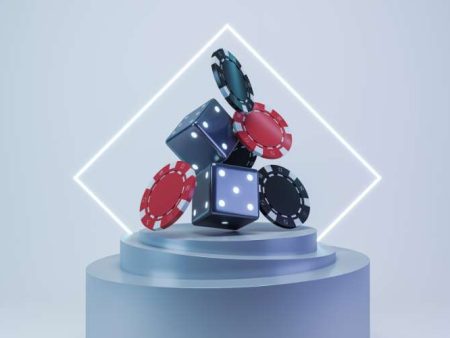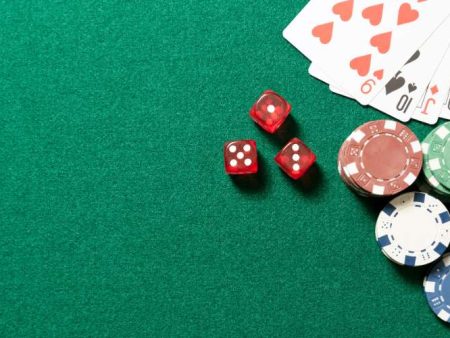
What's on this page
Live casino gaming has taken the online gambling world by storm, especially for players in the UK. It offers a unique blend of excitement, social interaction, and the allure of real-time gameplay. As more players dive into the live casino experience, I can’t help but notice how the psychology behind it all plays a huge role in its appeal. In this article, we’ll explore the psychological factors that influence live casino gaming and how they affect our decisions, emotions, and overall experience.
The Appeal of Live Casino Gaming
The thrill of live casino gaming begins with its immersive experience. Unlike traditional online slots or table games that rely on Random Number Generators (RNGs), live casinos offer real human dealers and real-time action. This creates an authentic atmosphere that mimics the feel of a brick-and-mortar casino. The presence of a real dealer, often accompanied by professional-grade cameras, makes the experience feel like you’re actually in a casino without leaving your home.
Realistic and Immersive Experience
One of the most compelling aspects of live casino games is how realistic they feel. Thanks to advancements in technology, you can now interact with a live dealer through a video stream, making it feel almost as if you’re sitting right across from them. This creates a sense of connection that simply isn’t present in RNG-based games. The element of human interaction adds excitement and authenticity, which many players find psychologically rewarding.
The Social Element
Another powerful psychological factor at play is the social element. Many live casino games allow players to chat with the dealer and sometimes with other players, creating a social environment that slots and other online games lack. This interaction adds a layer of community to the game, which can make it feel more engaging. For many players, it’s not just about the potential winnings—it’s about the experience of sharing moments with others, even if it’s online.
Psychological Effects of Real-Time Play
In a live casino, you get immediate feedback—win or lose— which directly affects your emotions. This real-time interaction can create an adrenaline rush that drives people to keep playing. In fact, the human mind thrives on immediate feedback, and this instant gratification plays a big role in why live casinos are so popular.
The Role of Personalization in Live Casino Gaming
One of the key elements that make live casino gaming stand out is how it allows for personalization. Players can adjust the game settings and pace to suit their preferences, enhancing the experience. This sense of control can create a more comfortable and enjoyable gaming environment. The psychological comfort this brings is significant, and it can affect how much time and money you’re willing to spend.
Player Control
In a live casino, players can control several aspects of their gaming experience. You can choose the game pace, interact with the dealer as much or as little as you want, and even select the specific dealer you prefer. This level of customization makes the experience feel more personal, and it taps into the human desire to feel in control. The more control you have over the environment, the more likely you are to feel comfortable and invested in the game.
Customization and Comfort
Another form of personalization is the ability to adjust settings such as the camera angles or chat preferences. Many live casino games allow you to choose the angle from which you want to view the game, making the experience feel more comfortable and suited to your needs. These small touches contribute to a sense of being “at home,” which can enhance the overall experience.
Psychological Comfort and Trust
Live casino games often create a greater sense of trust compared to RNG-based games. The visible presence of a human dealer and the transparency of real-time play foster trust, making players feel like they’re getting a fair experience. This psychological comfort encourages players to continue playing, as they feel more confident about the fairness of the game.
The Role of Cognitive Biases in Live Casino Gaming
As much as we like to think we make logical decisions, human behavior is often driven by biases—especially when it comes to gambling. Live casino psychology plays a big role in influencing how we perceive outcomes, and these biases can significantly impact the way we play.
The Gambler’s Fallacy
One common cognitive bias in gambling is the gambler’s fallacy. This is when players believe that past outcomes have an influence on future results. For example, after a long streak of losses in roulette or blackjack, a player might believe that a win is “due.” In live casino games, where the action is real-time, players can be even more susceptible to this fallacy because of the emotional highs and lows associated with immediate outcomes.
Confirmation Bias
Confirmation bias is another psychological phenomenon that affects how we perceive our gaming experience. In a live casino setting, players often focus on evidence that supports their beliefs, such as remembering the times they won and dismissing the losses. For instance, if a player wins a big hand, they may attribute it to their “lucky” actions and continue to play, disregarding their losses. This can lead to more impulsive decisions, as players reinforce their own beliefs about luck and skill.
The Illusion of Control
Live casino games, especially those that involve interacting with a human dealer, can also lead to the illusion of control. Because players feel involved in the action and can influence the pace or outcome of the game, they might believe they have more control over the game than they actually do. While making decisions in blackjack or poker can certainly affect the outcome, the truth is that chance still plays a huge role. However, this illusion of control can keep players engaged and invested in the game for longer periods.
The Emotional Dynamics of Live Casino Gaming
Live casino gaming is more than just about winning money—it’s also about managing emotions. The highs and lows of the game can have a powerful impact on a player’s behavior. Understanding these emotional dynamics can help players enjoy their experience while remaining in control.
The Highs and Lows of Gambling
Live casino games often lead players through emotional highs and lows. The thrill of winning a large pot or hitting a blackjack can create an intense rush of excitement. On the flip side, losing a hand or watching your bankroll dwindle can bring feelings of frustration or disappointment. These emotional fluctuations are part of what makes live casino gaming so thrilling, but they can also lead to impulsive decisions. It’s important to recognize these emotional peaks and valleys and stay grounded in your gameplay.
The Psychological Impact of Wins and Losses
Winning can be incredibly rewarding, especially in a live casino setting. The immediate feedback of a win can trigger a flood of positive emotions, leading to what some people refer to as the “winner’s high.” This can encourage players to keep playing, trying to replicate their success. However, losing can have a significant psychological impact as well. Studies have shown that humans are more affected by losses than wins, a phenomenon known as loss aversion. This makes players more likely to continue gambling in an attempt to recover their losses, sometimes leading to chasing losses.
Chasing Losses
Chasing losses is a common psychological pitfall in gambling, and it’s especially prevalent in live casino gaming. When a player experiences a loss, they may feel compelled to continue playing in an attempt to “win back” what they’ve lost. The live element, where wins and losses are immediate, can amplify this behavior. It’s important to remember that the game’s outcome is determined by chance, and attempting to recoup losses often leads to more losses.
Social Interaction and Group Psychology in Live Casino Games
In addition to the emotional and cognitive factors, live casino games also tap into the psychology of social interaction. The ability to chat with the dealer and other players adds a social dimension to the experience that is absent in traditional online slots or table games.
Player-to-Player Interaction
Many live casino games offer a chat function where players can interact not only with the dealer but also with one another. This creates a sense of community and can make the game feel more social and engaging. Players might find themselves discussing strategies or celebrating wins with others, which enhances the overall enjoyment.
FOMO (Fear of Missing Out)
In multiplayer live casino games, especially those with large jackpots or exciting wins, players can experience FOMO (Fear of Missing Out). Seeing other players win or engage in exciting gameplay can create a psychological urge to participate, even if the player didn’t initially plan to. This can lead to more impulsive betting or continued play, sometimes beyond what the player had originally intended.
Influence of the Dealer
The demeanor of the live dealer plays a big role in shaping the emotional tone of the game. A friendly, engaging dealer can make the experience more enjoyable and reduce stress, while a serious or overly formal dealer might make some players feel tense. The dealer’s mood can influence how players behave, affecting everything from how long they play to how much they wager.
The Impact of Time and Environment on Player Behavior
The time spent in a live casino environment can also influence a player’s decisions and behavior. From the illusion of time to the environment they’re playing in, there are several factors that can affect the gameplay experience.
The Illusion of Time in Live Casino Games
One of the psychological phenomena in live casino games is the illusion of time. Since live games often involve multiple players and the continuous flow of action, players can lose track of time. The real-time nature of the game keeps them engaged, sometimes for longer periods than intended. It’s important to be mindful of time when playing and ensure that you’re not losing track of your limits.
Environmental Factors
The environment in which you play can also have a significant impact. Playing from the comfort of your home may lead to more relaxed decision-making, while playing from a public space could introduce more distractions. The key is to create an environment where you feel comfortable and in control of your gaming experience.
Decision Fatigue
Extended play can lead to decision fatigue, a psychological condition where the quality of decisions decreases after a prolonged period of making choices. In live casino games, the pressure to make quick decisions—whether in poker, blackjack, or roulette—can lead to impulsive betting. Taking breaks and playing responsibly can help mitigate this.
Responsible Gaming and the Psychological Implications of Live Casino Play
As thrilling as live casino gaming can be, it’s essential to play responsibly. The psychology behind live casino gaming, with its highs, lows, and cognitive biases, can make it easy to get carried away. However, being aware of these psychological dynamics can help you maintain control.
Balancing Enjoyment and Risk
To enjoy live casino gaming while avoiding the risks, it’s crucial to maintain balance. Recognize the psychological triggers that could lead you to play longer or bet more than you should. By setting personal limits and knowing when to stop, you can enjoy the experience without letting it negatively impact your life.
Setting Limits
One of the best ways to maintain a healthy relationship with live casino gaming is by setting limits on both time and money. Whether you’re playing for fun or with the intent to win, having boundaries in place ensures you don’t get caught up in the emotional rollercoaster of the game.
Seeking Help for Problem Gambling
If you ever feel that gambling is taking a negative toll on your life, it’s important to seek help. Responsible gaming live casino initiatives are available to support players in managing their gambling habits. Many casinos provide tools for self-exclusion, deposit limits, and access to counseling services.
Conclusion
Live casino gaming offers an immersive and exciting experience that blends real-time action with psychological elements. From the social interactions to the cognitive biases at play, the psychology behind live casino games shapes our decisions, emotions, and overall experience. By understanding these dynamics, you can enjoy the best live casino promotions responsibly and ensure that your gaming experience remains fun and controlled. Always remember, the key to a great live casino experience is balancing enjoyment with responsibility.





